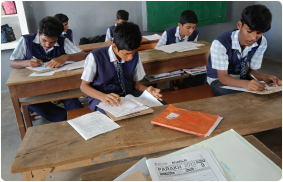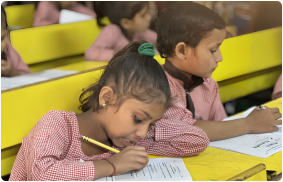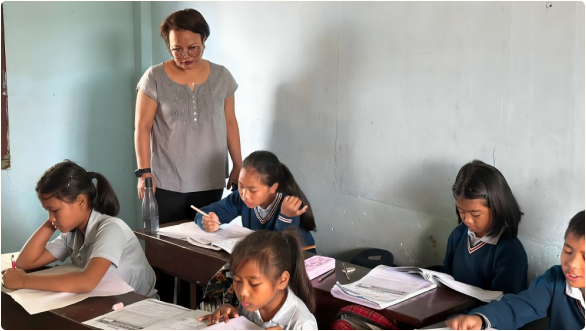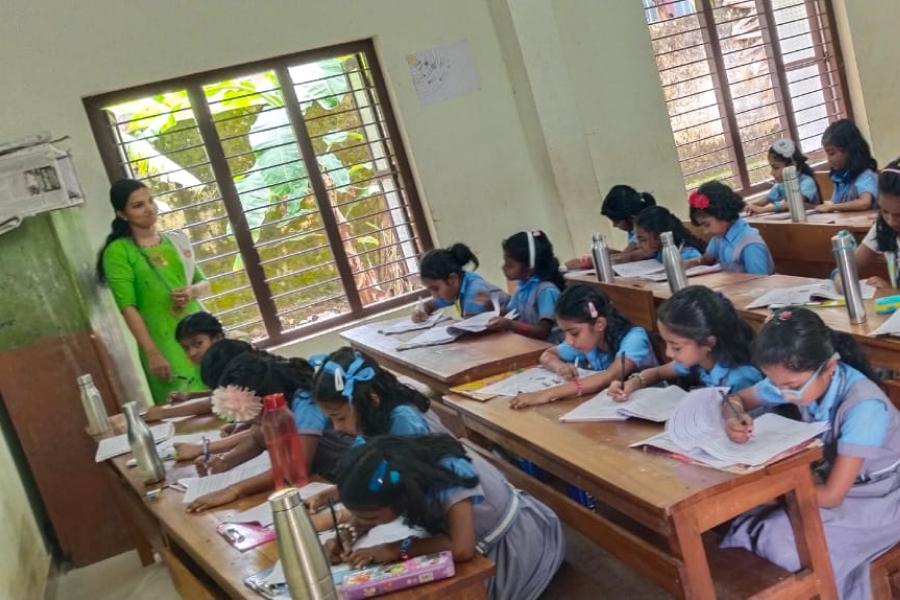State Educational Achievement Survey (SEAS) 2023
Aligned with the directives of the National Education Policy (NEP) 2020, PARAKH actively supported and guided the State Educational Achievement Survey. In the role of National Coordinator, PARAKH undertook various responsibilities, including the development of survey tools, coordination of sampling processes with the DDG (Statistics), and collaboration with state institutions to translate survey tools and questionnaires into different regional languages. These languages include Assamese, Bengali, English, Gujarati, Hindi, Kannada, Malayalam, Manipuri, Marathi, Mizo, Odia, Punjabi, Tamil, Telugu, Urdu, Bodo, Garo, Khasi, and Konkani.
At the state level, SPDs/SCERTs/SIEs/DIETs took essential steps to implement the survey at the block level. PARAKH also conducted training sessions for State Level Master Trainers, equipping block-level coordinators and field investigators with necessary skills. Additionally, PARAKH played a pivotal role in analyzing data and preparing block-level report cards.
Recognizing the fundamental role of competency-based assessments in educational progress and reform, the State Educational Achievement Survey (SEAS) for Grades 3, 6, and 9 becomes a crucial initiative. Aligned with the transformative goals of the National Education Policy (NEP) 2020, this survey, conducted on 3rd November 2023, assesses students' competencies at the end of Foundational, Preparatory, and Middle stages of education.



The assessment is conducted at three levels:
- Foundational literacy and numeracy are assessed across all three grades (3, 6, and 9).
- Preparatory level of language and mathematics is assessed at grades 6 and 9.
- Grade-specific language and mathematics are assessed at grades 3, 6, and 9.
To contextualize students' performance, background variables are collected through the Teacher's Questionnaire, Pupil's Questionnaire, and School Questionnaire. The SEAS 2023 is a school-based survey encompassing both rural and urban areas, with students selected through sampling.
SEAS 2023 covered 6416 blocks across 678 districts in 32 states and UTs, excluding Delhi, Punjab, Odisha, and West Bengal, which did not participate. Schools were sampled using the Probability-proportional-to-size (PPS) method, ensuring a representative sample through section and student sampling using the simple random sampling method. The scale of this survey is expansive, and its findings have the potential to not only inform policy choices but also to play a vital role in planning and implementing pedagogical interventions at the grassroots level.
 Government of India
Government of India More
More

